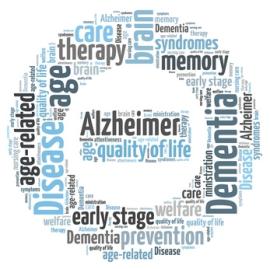All news
Coronavirus Vaccines and the Use of Aborted Fetal Cells
Author / Source : European Institute of Bioethics Published on : News Temps de lecture : 3 min.

At a time of accelerated development of vaccines against Covid-19, being well-informed is important, especially regarding the ethics of how these vaccines are developed and then produced and tested. The potential use of aborted fetuses' cell lines at any stage of the process is key for the ethical discernment. The Charlotte Lozier Institute in the United States has published, on the basis of a rigorous analysis of the scientific literature and the results of clinical trials, a det...
Sexuality and abortion: The European Parliament Adopts the Matic Report
Author / Source : European Institute of Bioethics Published on : News Temps de lecture : 2 min.

More broadly, with the expression "reproductive and sexual rights", the resolution calls on the European Union (EU) Member States to guarantee access to: "comprehensive sexual education; modern contraceptive methods; care during childbirth and the pre- and post-natal periods; obstetric care; new-born care; services providing safe and legal abortions; prevention and treatment of HIV infection and other STIs; services to detect, prevent and treat sexual and gender-based violence; treatment of ca...
 Belgium: Euthanasia of New-borns Practiced Outside the Law
Belgium: Euthanasia of New-borns Practiced Outside the Law
Author / Source : European Institute of Bioethics Published on : News Temps de lecture : 2 min.

In terms of the physician's intentions, the study distinguishes three situations. In the first scenario, the physician does not intend to cause or hasten the baby's death, but considers the potential effect of hastening death (e.g., decision not to administer antibiotics, administration of morphine or sedatives). The second scenario consists in the situation where the potential effect of hastening death is not the primary goal but is partly aimed at by the physician. The third scenario is that...
 The new Spanish law on euthanasia contested against the Constitutional Court a few days before its entry into force
The new Spanish law on euthanasia contested against the Constitutional Court a few days before its entry into force
Author / Source : European Institute of Bioethics Published on : News Temps de lecture : 3 min.

The law recognizes a new right, the right to euthanasia, which, according to the law, consists in the death of a person caused in a direct and intentional manner after the informed, explicit, and repeated request of that person, in a context of suffering caused by an incurable illness and which is conceived by the person as intolerable. The text of the law tries to ground this new right on other constitutional rights, such as the right to life, the right to physical integrity, the right to hum...
The International Society for Stem Cell Research Drops the 14-day Limit on Human Embryo Research
Author / Source : European Institute of Bioethics Published on : News Temps de lecture : 3 min.

During the last four decades, a period of 14 days was officially accepted as the ethical and legal limit on human embryo research. In other words, scientists were not allowed to pursue research on embryos beyond the fourteenth day after their fertilisation or after their unfreezing if they were previously frozen. This limit was recommended for the first time by the 1984 Report of the UK governmental Committee of Inquiry into Human Fertilisation and Embryology, also named after the Committee...
 Euthanasia in Belgium: Analysis of the 2020 Commission Report
Euthanasia in Belgium: Analysis of the 2020 Commission Report
Author / Source : C. du Bus Published on : News Temps de lecture : 1 min.

The 2020 Belgium euthanasia data states that 57 people died by euthanasia based on psychiatric disorders and 48 people died by euthanasia based on cognitive disorders (dementia syndromes). Of the 57 deaths based on psychiatric disorders, 17 people had mood disorders (depression, bipolar, ...); 26 people had personality and behavioural disorders (compared to 13 for the previous period); 4 people had neurotic disorders, disorders linked to stressors and 6 somatoform disorders; 7 people had...
Position of the WORLD MEDICAL ASSOCIATION (WMA) on euthanasia and physician-assisted suicide – Chronological overview (1987-2019)
Author / Source : L. Vanbellingen / WMA Published on : News Temps de lecture : 4 min.

In October 2019, the World Medical Association1 (WMA) adopted a declaration on euthanasia and physician-assisted suicide. This new declaration is an opportunity to analyze the documents successively adopted by the WMA on euthanasia and physician-assisted suicide in recent years, and to identify possible evolutions in this area. This Expert Flash reviews each of the relevant documents, and compares the terms used and positions adopted. It emerges that, while terms slightly vary, WMA's position...
 Death by Request in Switzerland: Post-traumatic stress disorder and complicated grief after witnessing assisted suicide
Death by Request in Switzerland: Post-traumatic stress disorder and complicated grief after witnessing assisted suicide
Author / Source : By B. Wagner, J. Müller, A. Maercker Published on : News Temps de lecture : 1 min.

A study conducted in Switzerland in December 2007 among 85 family members and friends who were present at an assisted suicide showed higher prevalence of PTSD (Post-Traumatic Stress Disorder) and complicated grief after witnessing assisted suicide than following a natural death. Switzerland is one of the few nations in which assisted suicide is legal. It is generally defined as the prescribing or supplying of drugs with the explicit intention of enabling the patient to end his or her own...
 Dementia and end-of-life decisions : the Hastings Center is going to examine the question
Dementia and end-of-life decisions : the Hastings Center is going to examine the question
Author / Source : The Hastings Center, National Institute in Aging Published on : News Temps de lecture : 1 min.

The senior population in the United States is growing, and as such, so is the number of cases of dementia. When a person has dementia, they experience the progressive impairment of cognitive facilities, including memory, problem solving and language. There is no cure yet for dementia and there is no effective way to halt its progression. As the condition progresses, the affected person requires daily assistance and eventually total care. Because dementia causes a loss of many cognitive...
